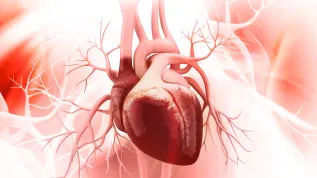
Centre for Innovative Research in Białystok wants to conduct Poland\'s most advanced research on biomarkers of lifestyle diseases, which can indicate early stages of diabetes or cancer.
In July, the centre received the Leading National Research Centre (Krajowy Naukowy Ośrodek Wiodący, KNOW) status. Over the next 5 years it may receive PLN 50 million.
The objectives of research conducted by Białystok KNOW with awarded funds will include the search for new biomarkers of lifestyle diseases. "We already have the equipment, infrastructure, and we are developing international cooperation. KNOW funds will allow us to carry out research and employ researchers, also from abroad" - said in an interview with PAP Prof. Adam Krętowski, Vice-Rector for Science, Medical University of Białystok. He said that the research will be based on large-scale techniques, that is, analysing the huge amounts of genetic and metabolomic (related to the products of metabolism) data.
According to Prof. Krętowski, his centre is one of the pioneers of research in this field. "In the last few months we have received equipment no other centre in Poland has" - said the Vice-Rector. With modern equipment, scientists can analyse blood or urine levels of proteins and chemical substances that could indicate a disease. They will also be able to study the human genome in search of information useful in detecting and treating diseases. "Firstly, we want to find markers of disease at an early stage, and secondly, select treatment appropriate for the patient" - he said. He added that his centre want the project to be competitive with other projects carried out abroad.
"We focus on cutting-edge technologies, which, however, generate huge amounts of data" - he said. He explained that scientists will test all parameters that are possible to test in the blood. "So, by examining one patient, we receive hundreds of thousands, if not millions of data. Someone has to interpret the data. We are a medical school, but we need the support of people who can analyse such data, for example with the use of artificial intelligence" - said Prof. Krętowski and noted that this would be a job for experts in bioinformatics or biostatistics. Therefore, Białystok unit has already established cooperation with the Belgian University of Hasselt.
With regard to research on the products of metabolism, the centre partnered with the University of San Pablo-CEU in Madrid. "Now we will have money for these professors to come here and train and supervise our scientists" - explained the Vice-Rector. In order to successfully pass on the expert knowledge to Polish specialists, the Medical University of Białystok will offer PhD studies in bioinformatics and biostatistics.
"KNOW funds are significant, but not sufficient to lead carry out innovative research at the highest level. This type of research requires a lot of money" - said the Vice-Rector. He assured that his centre will continue to apply for more grants.
Centre for Innovative Research in Białystok, which received KNOW status in the field of health sciences, was established 2 years ago. It is formed by Polish centres: Faculty of Medicine and Faculty of Pharmacy of the Medical University of Białystok and the Mossakowski Medical Research Centre PAS. Starting this year, the centre also cooperates with foreign centres: Centre for Statistics of the University of Hasselt in Belgium, and the Centre of Metabolomics and Bioanalysis at the San Pablo-CEU University in Spain.
CBI is one of six research centres that received the KNOW status in July. This status is awarded for five years. During this period, the best centres may receive additional funding of up to PLN 50 million from the state budget. The money can be used to strengthen the scientific and research potential. Granting of KNOW status to the best research centres is one of the components of the 2011 reform of higher education.
PAP - Science and Scholarship in Poland, Ludwika Tomala
lt/ ula/ tot/ jra/ mrt/
tr. RL
Fundacja PAP zezwala na bezpłatny przedruk artykułów z Serwisu Nauka w Polsce pod warunkiem mailowego poinformowania nas raz w miesiącu o fakcie korzystania z serwisu oraz podania źródła artykułu. W portalach i serwisach internetowych prosimy o zamieszczenie podlinkowanego adresu: Źródło: naukawpolsce.pl, a w czasopismach adnotacji: Źródło: Serwis Nauka w Polsce - naukawpolsce.pl. Powyższe zezwolenie nie dotyczy: informacji z kategorii "Świat" oraz wszelkich fotografii i materiałów wideo.













